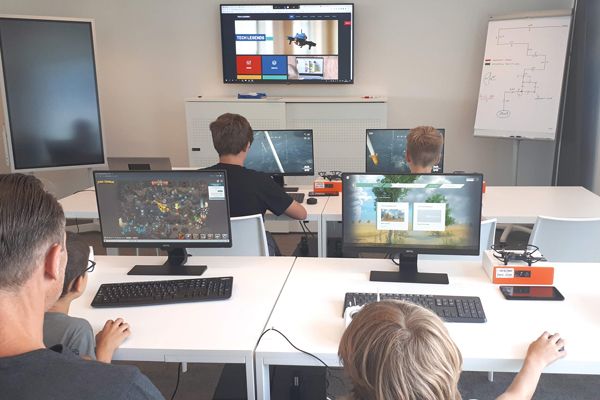
With technology advancements in almost all fields Engineering Education is still practising the age-old traditional teaching methods. To revolutionize Engineering education the integration of technology in teaching has become the need of the hour. This is a detailed report by Pankaj Samantray of Elets News Network.
In last few months, India’s education system has changed its shape and size with COVID-19 pandemic. India is moving towards knowledge driven economy, its strength depends upon the capabilities of its citizens. The key to develop a knowledge driven society is to create good Engineering graduates with sound technical knowledge who can be entrepreneurs, government executives or even educators. The pedagogy for engineering education has not changed much in the past hundreds of years.
With technology advancements in almost all fields Engineering Education is still practising the age -old traditional teaching methods. To revolutionize Engineering education the integration of technology in teaching has become the need of the hour.
Also read: FXEC: Creating New Frontiers in Engineering Education
This COVID -19 pandemic has made the entire country go into stages of lockdown. Engineering colleges were closed and the colleges cannot suffer loss of contact hours between faculty members & students. Hence, the engineering colleges were forced to adopt online teaching methodology with little or no preparation in hand. The situation can be seen as an opportunity to transform towards Blended learning in engineering education without much hassle in coming days.
Closures in colleges and universities have impacted the most vulnerable and marginalised students. Colleges provide opportunities for growth & development for the engineering students. Whatever the student learns in one particular semester the application must be tried and understood before going to the next phase. When classes for various subjects can be held online, the application part which is a must for engineering studies will be greatly affected.
Faculty members will have to maintain connections with their students to support their learning. When face to face teaching does not happen the Professors will have to make extra efforts to make sure that their teachings reach all students. This transition to distance Teaching-learning could be very messy in the initial stages. If they are not compatible enough the employers might have to opt for furlough of some employees.
It will become extremely difficult to conduct and validate the end-semester examinations. When these marks will be highly important for fetching jobs for the final year students, the fairness of the examination conducted and the marks awarded can become questionable by the companies who offer placements. In the absence of hard academic indicators, it would become difficult for the students to differentiate themselves and get themselves a job or move on to higher studies. Chances are that, the students final performance can be extrapolated with the performance throughout the year. The assessment in the COVID-19 times can be a huge problem as mobility is restricted.
As the closures of engineering colleges were sudden parents will have to facilitate the online learning of their children from home instantly. The online classes require either a smartphone or a laptop and a good internet facility. Most of them would not have required a broadband connection all these years and this would have come as a sudden task which has to be done for the benefits of their children.
Online Education can be affected by several factors like students, teachers, technology, individual learning styles, expected outcome from the teaching, teaching styles and psychological factor of the teacher.
Blended learning has several advantages like the teaching process can be shorter and content oriented rather than traditional lectures, also it offers flexibility for learners to access the resource materials from anywhere and anytime and later on discuss the problems faced in understanding that particular concept.
There is a gap between classroom& industry. When Traditional teaching methods and modern online teaching is blended correctly then a new and more interesting teaching-learning process can be created in the future. Colleges can look forward to sign MoU’s with foreign universities so that, technologists & teachers from other countries who cannot be invited to Indian colleges due to visa and availability of time issues, can be asked to provide online lectures and hence the quality of Engineering Education can be made even better in the future.
With governments, technologists and industry people participation in classroom education through online platforms, the gap between engineering education and the industry standards can be greatly addressed. It will be a lifestyle change to learn through online platforms after the pandemic is over.
The post-Covid-19 world will require every organisation to transform digitally. This was already happening but the pace will only increase exponentially. India and the world will need more graduates than less who understand science and engineering and can help navigate this new world. The premium on technology talent is going to be higher, not lower. Every engineer will be more employable than before.





















